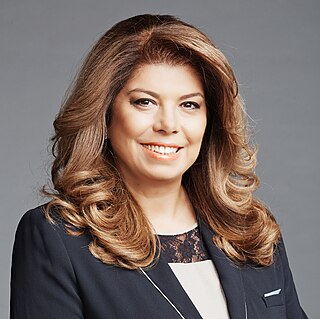Related Research Articles
Transparency International e.V. (TI) is a German registered voluntary association (Eingetragener Verein) founded in 1993 by former employees of the World Bank. Based in Berlin, its nonprofit and non-governmental purpose is to take action to combat global corruption with civil societal anti-corruption measures and to prevent criminal activities arising from corruption. Its most notable publications include the Global Corruption Barometer and the Corruption Perceptions Index. Transparency International serves as an umbrella organization. From 1993 till today its members have grown from a few individuals to more than 100 national chapters which engage in fighting perceived corruption in their home countries. TI is a member of G20 Think Tanks, UNESCO Consultative Status, United Nations Global Compact, Sustainable Development Solutions Network and shares the goals of peace, justice, strong institutions and partnerships of the United Nations Sustainable Development Group (UNSDG). TI confirmed the dis-accreditation of the national chapter of United States of America in 2017.

Crime in Estonia is combated by the Estonian police and other agencies.
Police corruption is a form of police misconduct in which law enforcement officers end up breaking their political contract and abuse their power for personal gain. This type of corruption may involve one or a group of officers. Internal police corruption is a challenge to public trust, cohesion of departmental policies, human rights and legal violations involving serious consequences. Police corruption can take many forms, such as bribery.

The United Nations Office on Drugs and Crime is a United Nations office that was established in 1997 as the Office for Drug Control and Crime Prevention by combining the United Nations International Drug Control Program (UNDCP) and the Crime Prevention and Criminal Justice Division in the United Nations Office at Vienna. and was renamed the United Nations Office on Drugs and Crime in 2002.

North Macedonia is a signatory to the European Convention on Human Rights and the U.N. Geneva Convention relating to the Status of Refugees and Convention against Torture, and the Constitution of North Macedonia guarantees basic human rights to all citizens.

Bulgarian law enforcement organisations are mainly subordinate to the Ministry of Interior.

Transnational organized crime (TOC) is organized crime coordinated across national borders, involving groups or markets of individuals working in more than one country to plan and execute illegal business ventures. In order to achieve their goals, these criminal groups use systematic violence and corruption. Common transnational organized crimes include conveying drugs, conveying arms, trafficking for sex, toxic waste disposal, materials theft and poaching.
Recent decades have seen a surge in the birth of "supraterritorial institutions and associations", that have been gathered by their enactment of common law and practices. European Union's regional expansion into Southeastern Europe to include Romania is one such example. The community of European states has enacted treaties that have allowed them to unite politically and economically.
The Bulgarian mafia is a series of organized crime elements originating from Bulgaria.

Crime in Poland is combated by the Polish police and other agencies.

On 1 January 2007, Bulgaria and Romania became member states of the European Union (EU) in the fifth wave of EU enlargement.
The Mechanism for Cooperation and Verification (CVM) is a safeguard measure invoked by the European Commission when a new member or acceding state of the European Union has failed to implement commitments undertaken in the context of the accession negotiations in the fields of the Area of freedom, security and justice or internal market policy.

Crime in Bulgaria is combated by the Bulgarian police and other agencies. The United States Department of State's Bureau of Diplomatic Security ranks Bulgaria's crime rating as High.

Iliana Malinova Iotova is a Bulgarian politician who has been serving as Vice President of Bulgaria since 2017. She was the running mate of Rumen Radev, who defeated GERB nominee Tsetska Tsacheva in the second round of the 2016 presidential election. She was a Member of the European Parliament from 2007 until her resignation on 16 January 2017. She speaks Bulgarian, French and English.

Mariya Ivanova Gabriel is a Bulgarian politician and a member of the GERB party serving as European Commissioner for Innovation, Research, Culture, Education and Youth since 2019. She served as Member of the European Parliament (MEP) from 2009 to 2017.

Corruption in Romania is considered a major problem. According to Transparency International's annual Corruption Perceptions Index, as of 2018, Romania is the 61st least corrupt country out of 180 countries, down from the 57th place in 2017, and the fourth most corrupt in the European Union. In the 2014 EU Anti-Corruption Report, 57% of the Romanians were most likely to say they are personally affected by corruption. Corruption can be found both in the public sector and in private businesses, and poses concerns for foreign investors. Although there have been improvements since the late 1990s, corruption remains a problem in Romania as it is especially found on all levels of public office, in the police force as well as in the judiciary system.

Corruption in Lithuania describes the prevention and occurrence of corruption in Lithuania.

Boyko Metodiev Borisov is a Bulgarian politician who served as the prime minister of Bulgaria from 2009 to 2013, 2014 to 2017 and 2017 to 2021, making him Bulgaria's second-longest serving prime minister to date.

Bulgaria has "systematically demonstrated very high levels of perception of corruption." Government officials reportedly engage in embezzlement, influence trading, government procurement violations, and bribery with impunity.
Bivol.bg, also known as Bivol, is an investigative media based in Bulgaria which is part of the Organized Crime and Corruption Reporting Project network and an official partner of WikiLeaks. Its team comprises Atanas Tchobanov, Dimitar Stoyanov and Assen Yordanov. Tchobanov is a member of the executive committee of the Organized Crime and Corruption Reporting Project.
References
 This article incorporates public domain material from the Library of Congress Country Studies website http://lcweb2.loc.gov/frd/cs/ .
This article incorporates public domain material from the Library of Congress Country Studies website http://lcweb2.loc.gov/frd/cs/ .